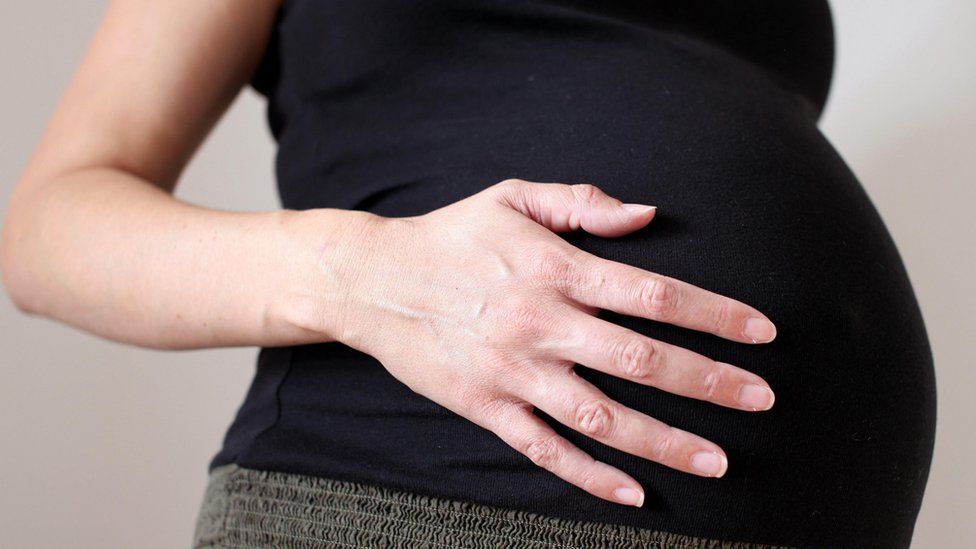Extend maternity pay and free childcare says business group CBI
- Published

For many working parents, juggling household bills with childcare is a major problem.
There have long been calls for more financial support, with the burden on business often raised as a reason for not improving the situation.
Now, parents have received a boost from what could be considered an unusual ally - business lobby group the CBI.
It has called for mums to receive maternity pay for longer and for more free childcare.
In its "wish-list" for the government's Autumn Statement in November, the CBI has said it wants to see statutory maternity pay extended to 52 weeks from the current 39.
It's also called for 15 hours a week of free childcare for all children aged 1-to 4-years-old.
The changes would cost more than £2bn, it estimates.
As part of proposals for strengthening the UK's economy, the CBI said the government needs to do more to attract women into careers.
"Businesses are increasingly reporting skills shortages, encouraging more women to remain in the labour force will play a part reducing this bottleneck and improve diversity," the CBI said.
Extra support for new mothers could lift female employment by 2% over 10 years, CBI research suggests.
At the moment all three to four-year-olds in England can get 570 hours of free early education or childcare per year. It's usually taken as 15 hours a week for 38 weeks of the year. Some two-year-olds are also eligible.
'Baffled'
"Childcare costs are an enormous barrier for parents who want to return to work," said Justine Roberts, chief executive of parenting discussion site Mumsnet.
"Mumsnet users have long been slightly baffled by the interval between the end of paid parental leave and the start of financial support with childcare costs. This gap can drive women out of the workforce, with calamitous results for their long-term prospects, gender equality and the national tax take," Ms Roberts said.
The CBI's recommendation marks a departure from claims in 2005 that plans to lengthen maternity leave (from six to the current nine months) would unfairly burden businesses.
'Pregnancy discrimination'
Suzanne Horne, partner and employment lawyer at law firm Paul Hastings urged caution over the plan.
"The CBI risks throwing the baby out with the bathwater by urging the Chancellor to extend paid maternity leave. It is highly likely that this would actually increase the risk of pregnancy discrimination against women as it would place too heavy a burden on employers.
"Rather than extending paid maternity leave, the government should focus on measures to simplify the shared parental leave system and help employers create a co-parenting culture," said Ms Horne.
Sam Smethers, chief executive at the Fawcett Society, a charity that promotes gender equality and women's rights, agreed that wider action is necessary.
"We need to make a fundamental shift and improve paid leave for fathers, moving to equalisation of leave entitlements so that caring for children can be seen as a shared responsibility. Only then will we end the motherhood penalty," she said.
Wider demands
The CBI included several other items on its list of things it would like to see in chancellor Philip Hammond's Autumn Statement next month.
These included ways to keep the tax and regulation systems competitive, a renewed commitment to infrastructure spending and ensuring UK businesses can continue to employ migrant workers.
"In the short-term, the government needs to stimulate confidence and investment, while over the longer-term, balance productivity growth across all regions with an ambitious plan for infrastructure investment," said the CBI.
- Published26 August 2016
- Published24 October 2016
- Published16 August 2016
- Published24 February 2016